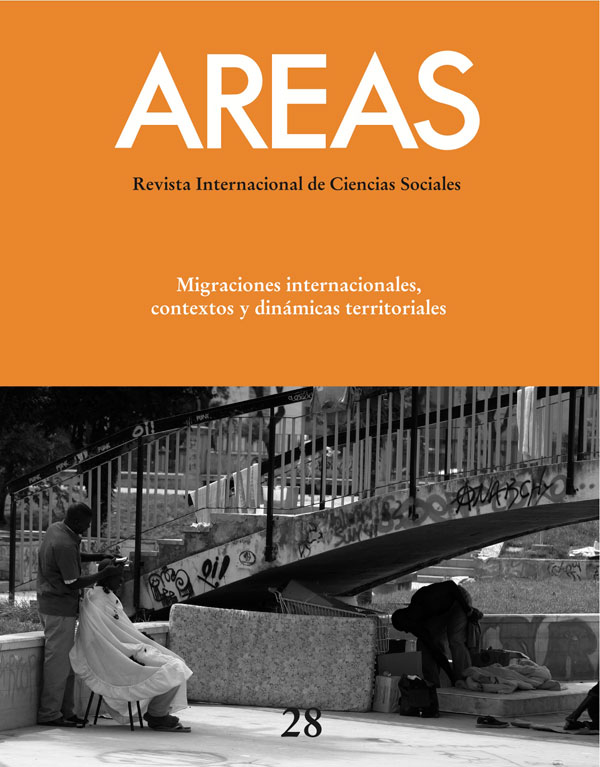Immigrants´ social insertion and residentiality in urban areas of Sevilla and El Ejido
Abstract
Different forms of residentiality in local contexts have been shaped in the immigrants’ process of social insertion in Andalusia. These forms of residentiality are the result of processes of social interaction, municipal productive specialization, and the socio-cultural dynamics generated during the immigrants’ settlement. From the confluence of these variables, one can find a particular configuration of urban space, which is both cause and effect of processes related to immigrants’ integration in local social contexts. The social construction of urban spaces, conditioned by the multiculturalism linked to immigration and interethnic relationships, acquires an outstanding relevance for social analysis because it is the product of sociability dynamics and collective identification processes which influence on social interaction. The residentiality of immigrant collectives is related to the characteristics of each host society, and plays a significant role in local policies related to urban planning, access to housing, socioeconomic dynamics, and socio-spatial segregation. New neighbours reinterpret the uses and meanings of space, generating processes of socio-spatial ethnization, new standards of sociability, structuring social networks, and urban reterritoralisation. The immigration processes in El Ejido and Seville are taken as case studies in order to demonstrate how the types of habitat and immigrants residentiality in Andalusia are the result of these dynamicsDownloads
Download data is not yet available.
Metrics
Views/Downloads
-
Abstract697
-
PDF (Español (España))282
Castaño Madroñal, Ángeles. (2009). Immigrants´ social insertion and residentiality in urban areas of Sevilla and El Ejido. Areas. International Social Science Journal, (28), 89–101. Retrieved from https://revistas.um.es/areas/article/view/118761
Artículos
The published works by this Journal are subject to the following terms:
1. The Publication Service of the University of Murcia (the Editor) owns the copyright of its publications. It promotes and allows its use under the indicated licence in Section 2.
© Servicio de Publicaciones, Universidad de Murcia, 2011
2. Papers are digitally published under the licence Creative Commons Reconocimiento-NoComercial-SinObraDerivada 3.0 España (legal text). They can be copied, used, disseminated, transferred and publically presented if: i) the author is quoted, as well as the original source of publication (Journal, editorial and URL); ii) they are not used for commercial purposes; iii) the licence of use is mentioned.
3. Auto-file Conditions. It is allowed and authors are encouraged to digitally disseminate their pre-print versions (versions prior to review) and/or post-print (reviewed version accepted for its publication) since it promotes its early diffusion and the corresponding increase of quotes and scope within the academic community. RoMEO Colour: green.


